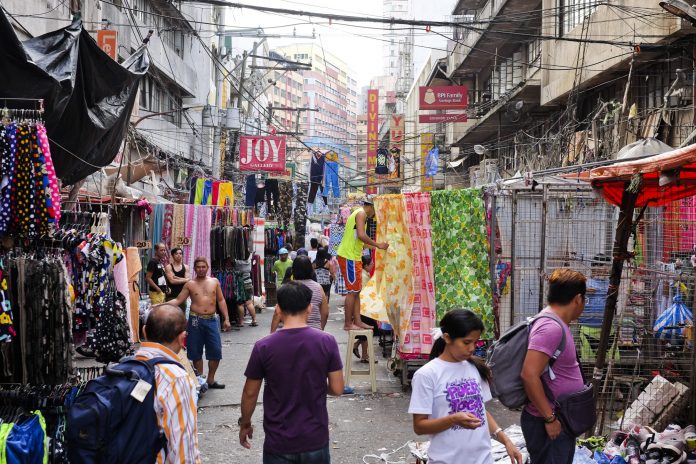
MANILA – As prices of everything from oil to rice soar in the Philippines, Maria De Guzman has scrambled to adjust. Her food bill has jumped 60 percent over the last year and now represents about half of monthly living expenses, prompting her family to scrimp on movies and even drive their car less.
“We don’t go out anymore,” said De Guzman, a 32-year-old university teacher in Manila. “These are things that we want to do, but we cannot. Even if it’s pay day, you don’t have money. It’s already spent or budgeted.”
Such financial pressure is being felt broadly among Filipinos, and creating political headaches for President Rodrigo Duterte. The Philippines is now home to the fastest inflation rate in Asia, which economists predict accelerated to 6.8 percent in September after a super-typhoon last month damaged crops and oil prices rose.
If so, that would be the fastest pace since 2009, adding pressure on the central bank to keep raising interest rates. Policy makers forecast annual inflation will exceed a target of 2 percent to 4 percent until next year.
“Strong action is what Bangko Sentral ng Pilipinas needs to shore up investors’ confidence,” said Jiaxin Lu, an economist at Continuum Economics in Singapore. “We continue to see more rate hikes. Rate hikes alone, however, are not likely to resolve the inflation issue, and other non-monetary measures that deal with supply-side constraints are also crucial.”
The consumer price spike started at the beginning of the year following tax increases on fuel, sugary drinks and cigarettes – then swiftly moved to rice, the nation’s staple food, due to supply shortages. On top of that, a more than 8 percent slump in the currency this year is adding to the inflationary pressure. The country imports almost all of its oil, alongside food products like rice and corn.
Consumers are cutting back on purchases of non-essential items, switching to cheaper products and changing routines. A consumer sentiment index contracted for the first time in more than two years, a worrying signal in a country where private consumption makes up about 70 percent of gross domestic product.
While the Philippines’ economy is still among the most rapidly expanding in the world, the outlook is more uncertain. The Asian Development Bank last week downgraded the nation’s 2018 growth forecast to 6.4 percent from 6.8 percent, the most in Southeast Asia.
That means more austerity for middle-class consumers. Rose Urquico, 32, who used to drink and dine out as many as five times a week, is staying more at home and eating home-cooked meals. She also gave up yoga classes and limits visits to the hair salon.
Rate Hikes
“I’m tightening my belt, and I’m trying to scrape savings together,” she said. “More of my money now goes to food, rent and other expenses that are necessary.”
Some are even turning to growing their own food, like Czeriza Vigilia, a journalist who started a vegetable garden at home with string beans, tomatoes and chili pepper among her crops.
The central bank, which has faced criticism for being too slow to act, has delivered 150 basis-points of interest-rate increases since May.
But there are signs that the inflationary pressure is worsening, as wages are set to rise in October. The government has approved higher water rates as well as fuel surcharges for airlines.
President Duterte is rushing to fix the problem as a recent opinion poll showed rising prices may be taking a toll on his popularity. The government is putting in place measures from police checks on overpricing to easier rules for food imports like rice and sugar to boost domestic supply.
“People have been asking us to impose price controls but, we don’t believe in that kind of approach,” Finance Secretary Carlos Dominguez said on Thursday. “If you impose price controls, the items will just disappear from the market. So we’re addressing it by increasing supply.”
The Philippines is scheduled to hold midterm elections next year, and inflation is set to become a key campaign theme.
“Inflation is political,” said Maria Fe Villamejor-Mendoza, dean at the University of the Philippines’ National College of Public Administration and Governance in Manila. “It’s putting stress on the government because they have to appease the public. Even those who have higher salaries are affected.” (Bloomberg)







